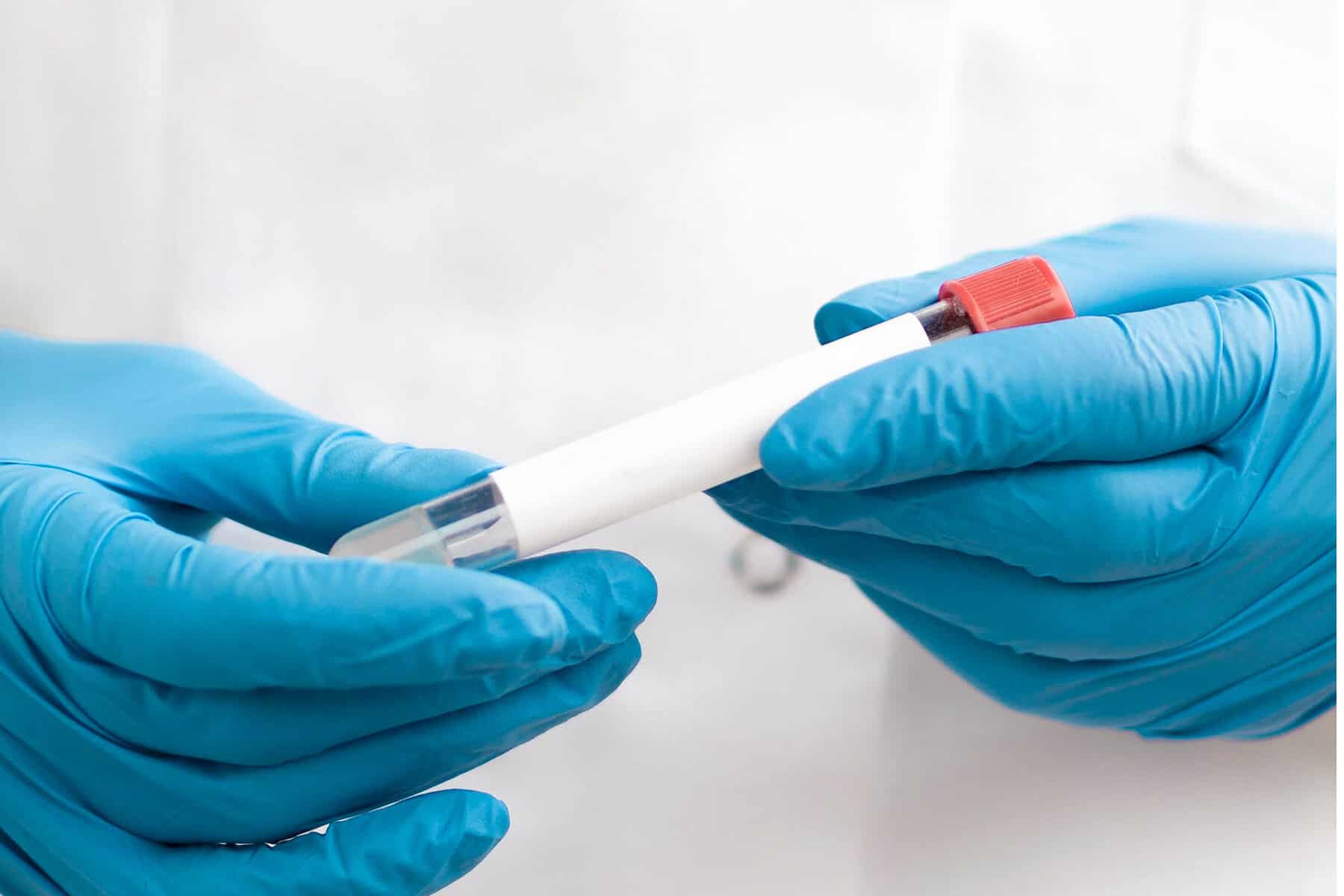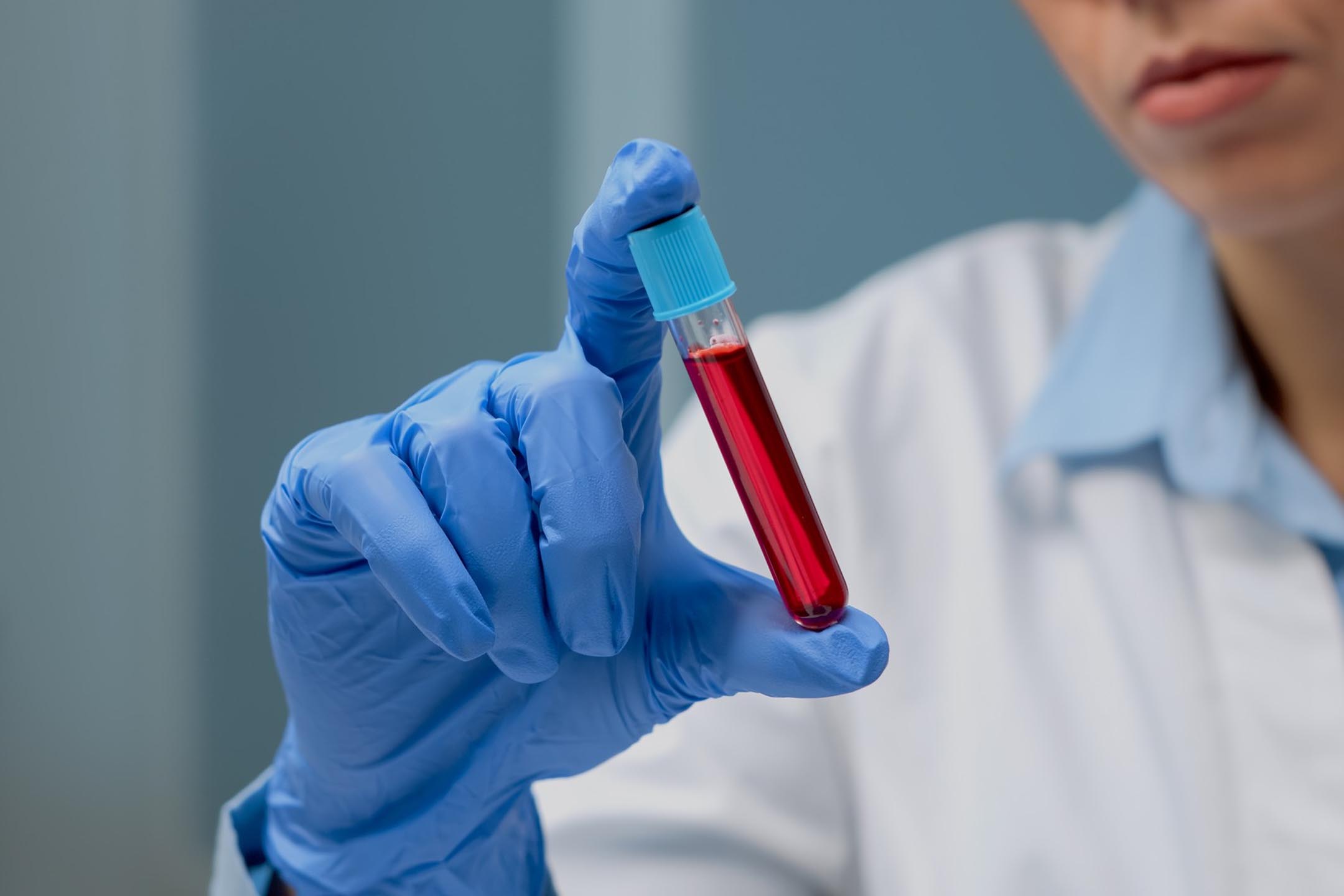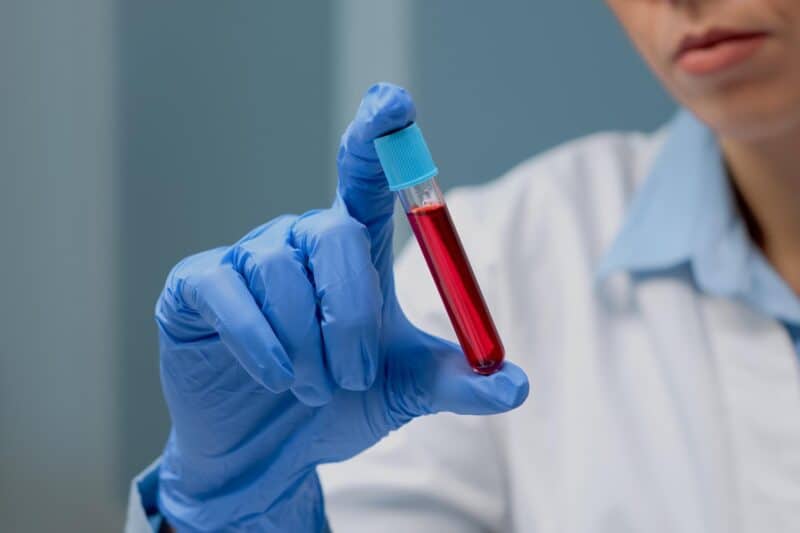Haematocrit Test
This blood test provides insight into the proportion of red blood cells in your blood, helping to identify anaemia, dehydration and other underlying conditions.

What is a Platelet Count Test?
The haematocrit test measures how much of your blood is made up of red blood cells, which are essential for transporting oxygen around the body. It’s a routine component of a full blood count and is often used to support the diagnosis of anaemia, monitor chronic illnesses or assess general health. Abnormal haematocrit levels can indicate issues such as nutritional deficiencies, bone marrow disorders or fluid imbalance.


Why is a Haematocrit Test carried out?
A haematocrit test is used to help diagnose or monitor conditions that affect your red blood cell levels, such as anaemia or dehydration. It is also useful in evaluating symptoms like fatigue, dizziness or shortness of breath.
What is a normal haematocrit range?
For adults, a normal haematocrit range typically falls between 38% and 50% for men and 34% and 46% for women. These values may vary slightly depending on the laboratory and individual health factors. Having your result interpreted by a healthcare professional in context with other blood tests is important for an accurate diagnosis.
What does a low haematocrit level mean?
A low haematocrit level suggests that your blood has a reduced proportion of red blood cells, which is often a sign of anaemia. This can occur due to iron, vitamin B12 or folate deficiency, chronic kidney disease or significant blood loss. Symptoms may include fatigue, weakness, shortness of breath or pale skin, and further tests are usually needed to identify the cause.
What does a high haematocrit level mean?
A high haematocrit level means there is a higher-than-normal concentration of red blood cells in your blood. This can result from dehydration, living at high altitude, lung disease or a condition like polycythaemia vera that increases red cell production. It may lead to thicker blood and an increased risk of blood clots, so ongoing monitoring or additional tests may be recommended.
Can a Haematocrit Test detect cancer?
A haematocrit test cannot diagnose cancer directly, but abnormal results may prompt further testing. For example, certain cancers that affect the bone marrow can disrupt red blood cell production. If results fall outside the normal range, your clinician may recommend additional blood tests or imaging.

Haematocrit Test FAQs
- What does haematocrit mean in a blood test?
Haematocrit refers to the percentage of your blood volume made up of red blood cells. It helps assess how well your body is delivering oxygen to tissues.
- Is haematocrit included in a full blood count?
Yes. Haematocrit is routinely measured as part of a full blood count alongside other indicators like haemoglobin and MCV.
- Can dehydration affect haematocrit levels?
Yes. Dehydration can cause a temporary rise in haematocrit levels due to reduced plasma volume, which concentrates red blood cells.
- Do I need to fast before a haematocrit test?
No, there is no need to fast before a haematocrit test. You can attend your appointment as normal.

Why Choose The Forbury Clinic?
At The Forbury Clinic, your health is assessed with precision and care. Whether you’re managing a known condition or seeking clarity on symptoms like tiredness or dizziness, our team delivers fast, consultant-led blood testing in a supportive environment. With access to expert interpretation and next steps where needed, we ensure your results are part of a personalised health plan. From first test to follow-up, our priority is your peace of mind.
Book a full blood count today to check your haematocrit level and take a step towards better health.








